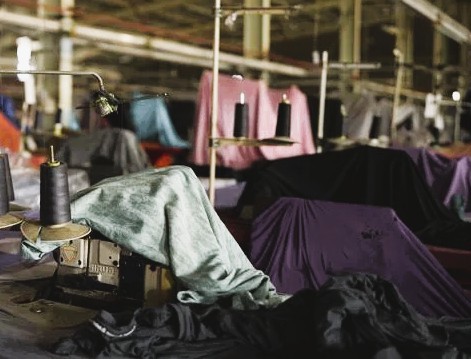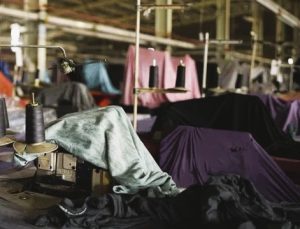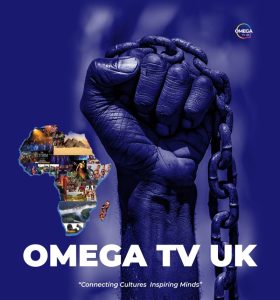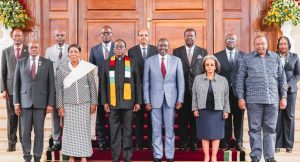Lesotho gets tariff relief from US, but economic damage lingers
3 min read
Lesotho’s garment industry faces collapse after punitive US tariffs, threatening thousands of jobs and deepening economic despair.
Factory Floors Fall Silent in Lesotho After US Tariffs
Once a bustling production site with the hum of sewing machines and busy factory workers, the Tzicc clothing factory in Lesotho now stands deserted. Once a major exporter of sportswear to major US retailers like Walmart, Costco, and JCPenney, the factory has gone quiet in the aftermath of devastating US-imposed tariffs that shook the nation’s fragile economy.
Trump Tariffs Hit Tiny Nation Hard
The trouble began when former US President Donald Trump implemented sweeping tariffs on almost all trade partners earlier this year. Lesotho, a small Southern African kingdom, unexpectedly topped the list—with a staggering 50% tariff rate, higher even than China’s. With exports heavily reliant on the US market, the move caught officials and manufacturers completely off guard.
Temporary Relief Offers Little Hope
Though the US later paused the policy for trade negotiations, reducing the tariff to 10% for the interim, uncertainty remains. With no formal letter confirming a permanent change and the pause set to expire soon, Lesotho still finds itself in economic limbo. For the country’s 30,000 textile workers, including 12,000 focused on US-bound exports, the damage may already be irreversible.
Orders Vanish, Workers Sent Home
Faced with the looming threat of high tariffs, US buyers rapidly withdrew new orders from Lesotho’s factories. At Tzicc, managers scrambled to fulfil existing commitments before increased tariffs took effect. But once those were delivered, business dried up. Nearly all 1,300 staff members were sent home—most without severance or assurance of return.
“Unfortunately, we’re finished,” said Rahila Omar, the factory’s compliance manager, walking through aisles of unused, dust-covered machines. Only a skeleton crew remains to manage accounts and move remaining stock.
A Domino Effect Across the Economy
Lesotho’s economy is heavily dependent on garment manufacturing—its largest private sector employer. The ripple effects of the industry’s decline are far-reaching. Small business owners, landlords, taxi drivers, and local transport operators all report loss of income tied to the factory closures.
Trade Minister Mokhethi Shelile warns that more closures could follow, affecting up to 40,000 people indirectly. “This isn’t just about factories. It’s about livelihoods—families, housing, education. The damage spreads far beyond factory gates,” he said.
A Fragile Trade Relationship Strained

Despite Lesotho’s long-standing relationship with the US—including military support and major funding to fight HIV/AIDS—the tariff increase seemed to ignore decades of cooperation. Shelile said he was still negotiating the renewal of the African Growth and Opportunity Act (AGOA), which allows duty-free exports to the US, when he received news of the 50% tariff via text in the middle of the night.
“Honestly, we didn’t expect to be targeted this way,” he said. “Lesotho’s economy is too small to pose any threat.”
A Trade Deficit Impossible to Balance
According to the Trump administration, Lesotho was penalised due to its $240 million trade surplus with the US, compared to only $2.8 million in American imports. But with nearly half of Lesotho’s population living in poverty, Shelile argues that the imbalance is natural—not malicious. “We cannot afford to import US goods at scale. Penalising us doesn’t fix the deficit. It worsens our poverty,” he added.
The Human Cost of Tariffs
Former Tzicc employee Mapontso Mathunya, once the sole provider for her family, now sells snacks and cigarettes on the street. Her husband also lost his job. “Life is difficult,” she said. “There’s no work. No money. Nothing.”
She’s not alone. Most laid-off workers now roam from factory to factory, desperate for any job. Few succeed.
Future Uncertain, Even if Buyers Return
Though there’s hope the US may further reduce or eliminate tariffs, factory officials remain cautious. Omar believes it’s unlikely Tzicc could rehire all its staff even if orders resume. “We lost trust. And once that happens in business, it’s hard to rebuild.”
Pivoting to regional markets like South Africa, as some have suggested, wouldn’t cover even basic payroll costs.






